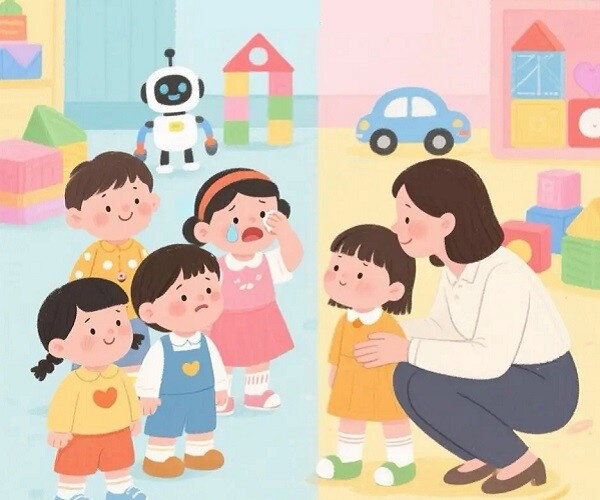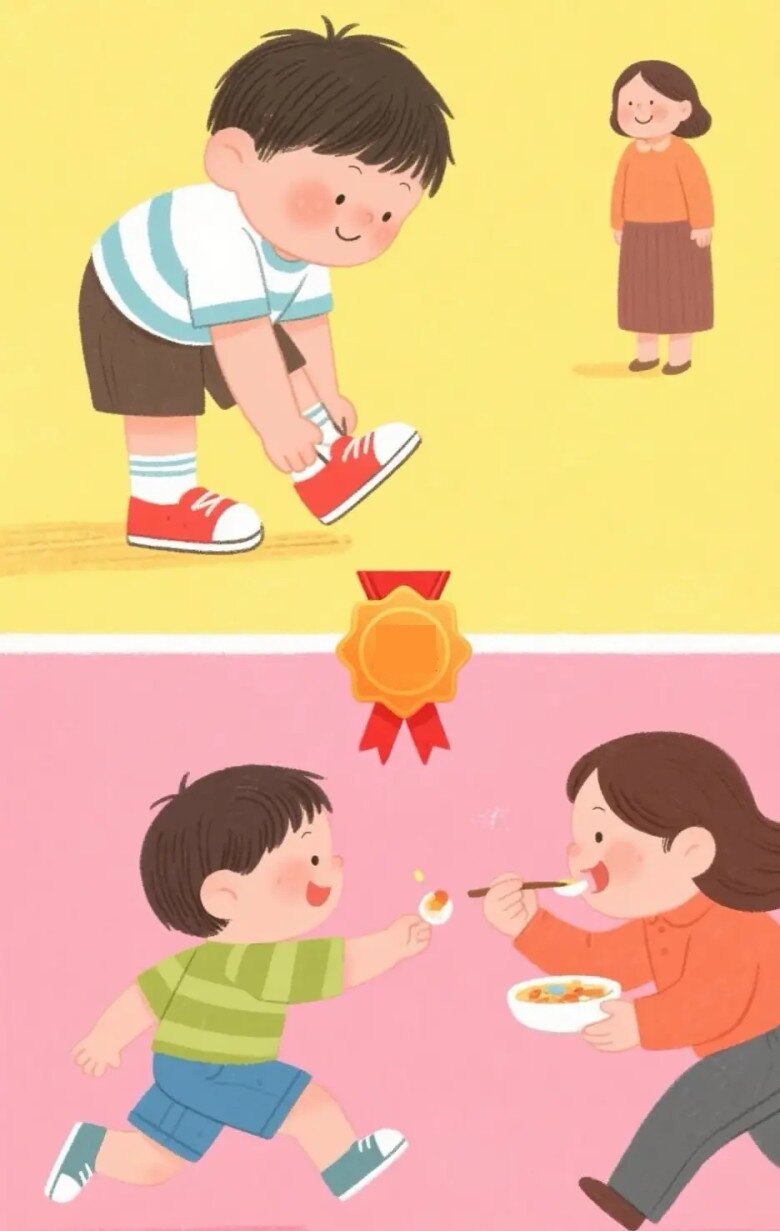What’s the secret behind these tear-free children? Preschool teachers have identified four types of families with distinct parenting styles that influence their children’s psychology and behavior. Families who foster independence and create a safe, positive environment tend to produce children who are more confident when facing new experiences.
If you’re a parent who wants to improve your parenting style, consider the following methods to encourage your child’s self-confidence.


Children gain independence when parents let go
Preschool teachers observe that children who don’t cry on their first day of school have often developed self-reliance at home.
For instance, they are encouraged to eat and dress independently, without parental urging. When faced with challenges, these children don’t resort to crying or tantrums but instead, try to resolve issues on their own.
Short-term separation training is also key. Parents might leave their children alone within sight, such as when playing with toys for 10 minutes, so they can get used to the feeling of their mother not being by their side.
As a result, when these children enter preschool, they are less likely to feel overwhelmed by their mother’s absence and quickly adapt to their new surroundings.


Parents’ cheerful attitude fosters children’s social skills
Some children take the initiative to greet their peers and even help teachers comfort crying classmates. These children often come from families with the following characteristics:
Outgoing families: Parents enjoy taking their children outdoors and encourage them to greet strangers.
Optimistic and positive families: Instead of complaining about difficulties, parents maintain a positive attitude and influence their children to do the same.
Close-knit families: Parents don’t just sit next to their children while being engrossed in their phones; they actively engage in games and conversations with their kids.
As a result, these children don’t feel anxious when entering a new environment; instead, they look forward to making more friends at preschool.


Familiarize children with the preschool environment
Some savvy parents use “familiarity” to reduce their children’s anxiety:
Preschool visits: Taking children to visit the preschool, play with the toys, and explore the classrooms and playgrounds can reduce the sense of strangeness.
Role-playing preschool life: Playing teacher-student role-playing games at home can help children understand the daily activities they will encounter at preschool.
Positive guidance: Instead of threatening, “I’ll send you to preschool if you don’t behave,” try saying, “You’ll be able to learn new things and make friends at preschool.”
By doing so, children won’t feel like they’re being “thrown” into a scary place but will instead look forward to playing and making new friends.


Warm family atmosphere makes children feel safe
Families with emotionally intelligent children often exhibit the following traits:
Harmonious parental relationship: Parents avoid arguing in front of their children, ensuring they feel that “home is a safe place.”
Keeping promises: If a parent promises to pick their child up after school, they will be there on time, building trust.
Friendship with children: Parents pay attention to their children’s emotions and needs, fostering a sense of security.
These children feel safe and secure, without worries about their parents’ love, making it easier for them to adapt to new environments.
What can parents do to help their children adjust better? Here are three practical suggestions:

Don’t wait until the new school year to prepare: Adjust your child’s schedule one to two months in advance to develop their self-care abilities. This helps them get used to a new routine and fosters independence and responsibility.
Say a firm goodbye: Don’t hesitate when dropping your child off at preschool. Prolonged goodbyes may lead to more tears. A simple, “See you after school,” followed by a quick departure, provides reassurance and helps your child feel secure in the knowledge that you’ll be back.
Trust the teachers: Avoid peeking through windows, as your anxiety may transfer to your child. Have faith in the teachers’ abilities and expertise; they are trained to handle such situations. If you display confidence, your child will also feel more at ease about separating from you.
Whether or not a child cries at preschool is not a reflection of their character but rather, a result of their family’s parenting style. Children who are taught independence and self-confidence from an early age tend to adapt more easily to new environments. Encourage your child to participate in group activities, make friends, and explore. If your family falls into one of the four categories mentioned above, rest assured that your child will approach preschool with confidence.
Every child is unique and will have their own approach to change. However, with careful preparation and a supportive environment, parents can help their children embark on this new stage of life with a positive and confident mindset.
Nurture vs Nature: What Truly Shapes Your Child’s Personality?
“For years, we believed that a child’s upbringing was the primary determinant of their future. However, recent studies have revealed a surprising truth: our genes play a more significant role in shaping our personalities and traits. This newfound understanding has left many parents questioning the conventional wisdom and seeking ways to support their children’s development in light of this new knowledge.”






































